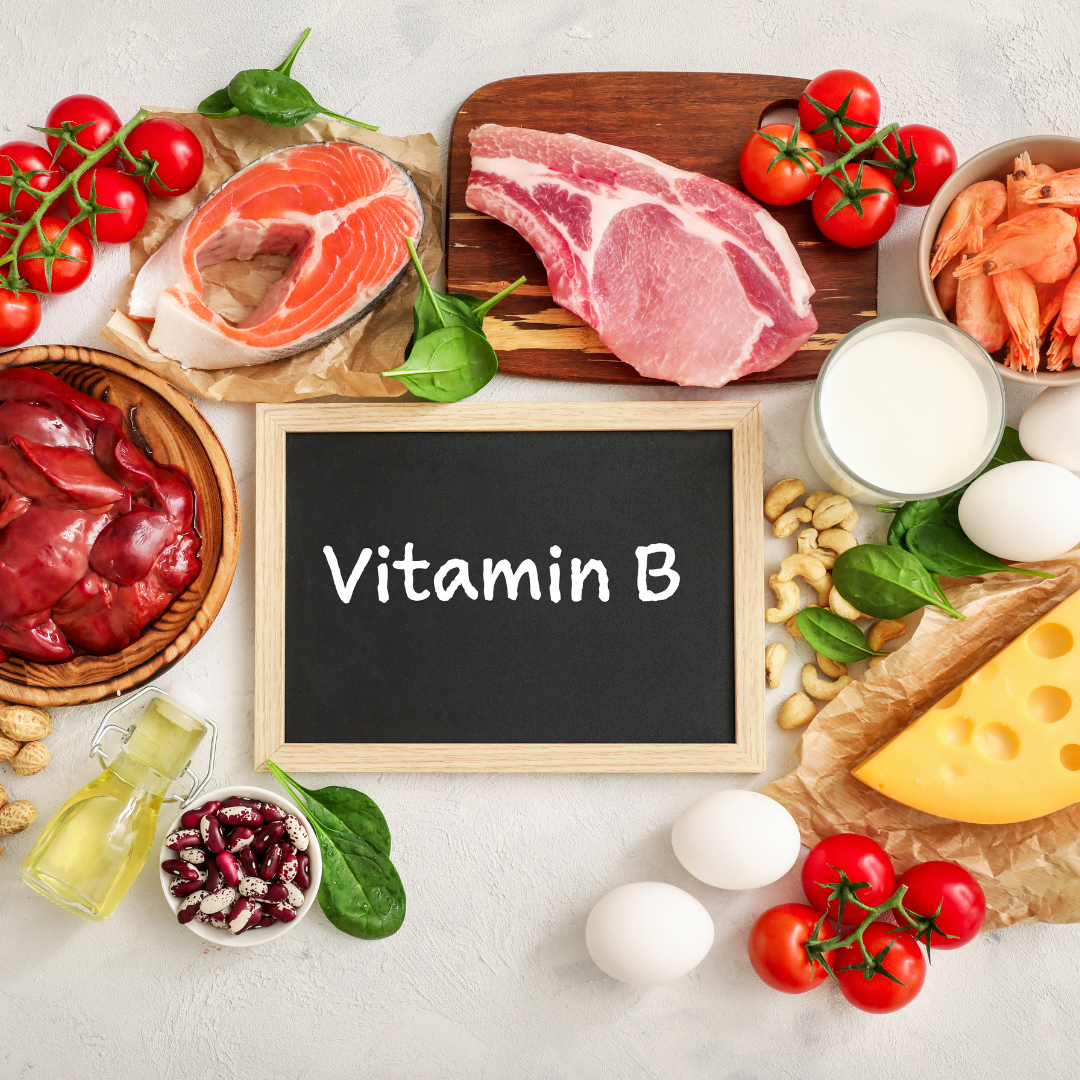Let's talk about B Vitamins! You've probably heard of Vitamin B12 as it is a popular supplement for energy. Or maybe biotin (B7) which is often used for healthy hair, skin, and nails. Did you know that there are 8 B vitamins in all? They are: B1 (thiamine), B2 (riboflavin), B3 (niacin), B5 (pantothenic acid), B6 (pyridoxine), B7 (biotin), B9 (folate) and B12 (cobalamin).
All B vitamins are water-soluble, which means they aren’t stored in the body and must be replenished regularly. These vitamins play vital roles in many of the body’s systems, including metabolism, red blood cell production, nerve function, and more. Here is a closer look at some of the specific functions of each B vitamin and the best food sources to get them from:
B1 (thiamine)
Vitamin B1, thiamin, or thiamine helps the body convert food into energy. It is essential for glucose metabolism and plays a key role in nerve, muscle, and heart function.
Food sources: Fortified breakfast cereal, pork, fish, beans, lentils, green peas, sunflower seeds, and yogurt.
B2 (riboflavin)
Helps produce red blood cells, maintain healthy skin, and support other cellular functions that help to give you energy. It also helps to break down protein, fats, and carbohydrates.
Food sources: Dairy milk, yogurt, cheese, eggs, lean beef and pork, chicken breast, and salmon.
B3 (niacin)
B3 plays a role in converting the food we eat into energy. It helps the body to use proteins and fats, and it keeps the skin, hair, and nervous system healthy.
Food sources: Red meat, poultry, fish, brown rice, nuts, seeds, legumes, and bananas.
B5 (pantothenic acid)
Aids in the production of hormones and cholesterol. This vitamin is also necessary for the production of red blood cells and certain hormones.
Food sources: Fortified cereals, organ meats, beef, chicken breast, mushrooms, avocado, nuts, seeds, and dairy milk.
B6 (pyridoxine)
Vitamin B6 supports immune system function, normal brain development, and your nervous system.
Food sources: Beef liver, tuna, salmon, fortified cereals, chickpeas, and poultry.
B7 (biotin)
Helps the body metabolize fats and carbohydrates.
Food sources: Beef liver, egg, salmon, avocado, pork, sweet potato, nuts, and seeds.
B9 (folate)
Essential for the formation of new red blood cells.
Food sources: Dark green leafy vegetables, beans, peanuts, sunflower seeds, fresh fruits, whole grains, liver, and seafood.
B12 (cobalamin)
Helps maintain healthy nerve cells and red blood cells.
Food sources: Meat, fish, milk, cheese, eggs, and some fortified breakfast cereals.
B vitamins are found in a variety of foods, including meat, poultry, fish, eggs, dairy products, legumes, and whole grains. You can also get B vitamins through supplements, although it’s best to get them from food sources whenever possible.
Eating a diet that includes a wide variety of nutrient-rich foods is the best way to ensure you’re getting all the B vitamins you need. However, some people may be at risk for B vitamin deficiencies due to certain medical conditions or medications. If you think you may be deficient in any of the B vitamins, talk to your doctor about taking supplements.






